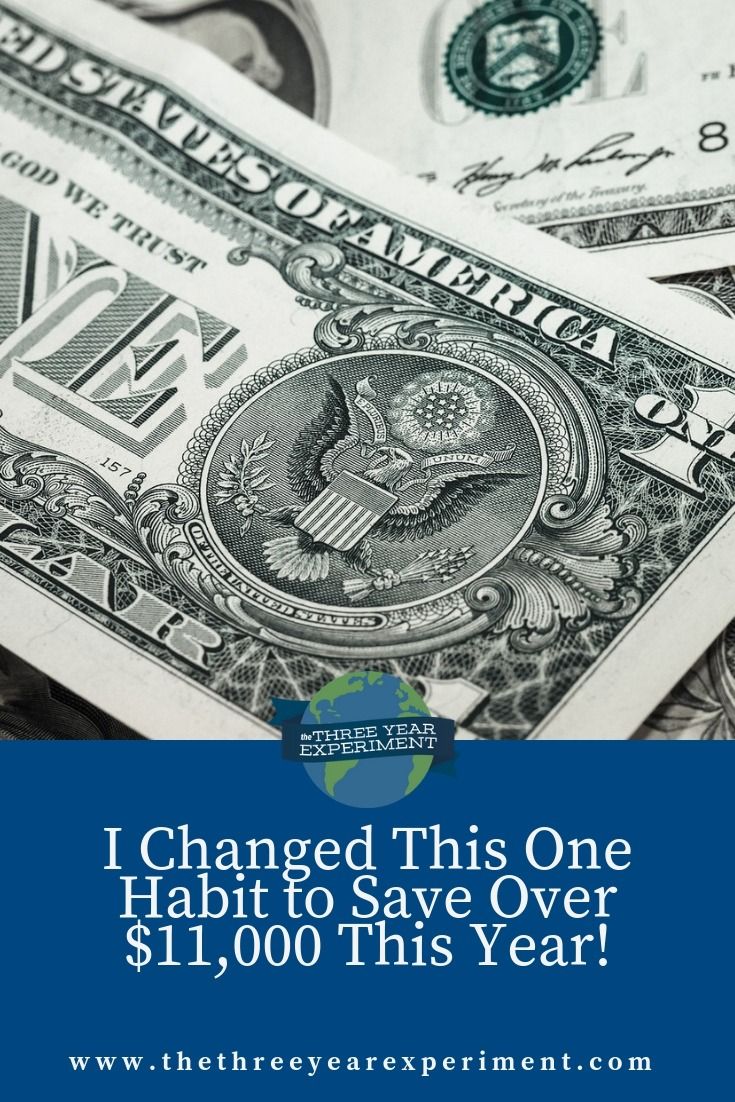Could you really implement one, just one habit into your life to save massive amounts of money in a year?
You can, and it’s not too hard. I did it, and I saved over $11,000 in one year, without really trying to.
What in the world is this magic trick and how can you implement it?
Read on.
The Excel Spreadsheet
It’s almost December, and I’ve just about completed the second year of tracking my spending on my good ole’ Excel Spreadsheet.
Wait, what? That’s the big secret? Tracking?
Yep. Sorry if you were expecting something more flashy.
But it really is as simple as that.
I started the habit last January (2015), when I wanted more control of my spending trends than my budgeting software was giving me.
Our family has made (and gone over) budgets since 2008, so I’d been keeping a close eye on our spending for many years.
I kept hearing advice that tracking your spending was important to financial independence, so…
I decided to manually track everything in my Super-Duper-Over-the-Top-Six-Sheet Excel Networth Spreadsheet.
And it turns out that manually tracking your spending is enough to change your spending behavior in major ways.

Manually tracking our family’s spending gave me control over what is actually Spending and what is Saving. For example, I categorize principal payments on our mortgage as Saving.
You may disagree with me, but I track this way to get a better handle on what our spending needs will be in retirement.
It also makes areas that we need to pay off, or decrease, abundantly clear. In 2015, for example, we paid $5069 in daycare and camps.
If this sounds exorbitant to you, believe me, it does to me, too.
In 2015, I worked in marketing for a theater company whose season was in the summer, so I needed the most daycare for my kiddos precisely when school ended. And camps in this area are not cheap. For the first half of the year, my youngest son was in preschool, and that was also a major expense.
The shock of that $5000+ expenditure translated, almost subconsciously, into a change in spending behavior in 2016.
I took a new job, at my boys’ elementary school. It paid less (a lot less—less than half), but it allowed me summers off, and to be home during snow days and school holidays because I was on their schedule, as a part-time teacher.
In 2016, our total daycare and camp expenditures were precisely $103. Okay, not precisely, because my Excel spreadsheet rounds up the pennies. But you get the idea.
$11,000 WHAT???
In fact, our total spending for 2016 is down significantly from 2015. We’re on track to spend over $11,000 after tax dollars LESS than in 2015!! How is this possible?
It’s amazing to me. I know we saved $5000 on camps and daycare, and we did consolidate a high-interest second mortgage into a low-interest balloon payment, saving us almost $200 in interest per month, but, that still only accounts for $7400.
Like so much in the area of personal finance, the answer undoubtedly lies in the psychology of me dutifully tracking our spending each month.
Savings
Mortgage interest: $1732 LESS
Home improvement: $4872 LESS
Eating out: $1075 LESS
Clothes: $1231 LESS
School supplies: $308 LESS
Daycare/camps: $4966 LESS
My business: $2560 LESS
These all add up to $16,744, which means that we spent MORE in other categories in 2016.
Still, though, tracking made enough of a difference that we dropped spending in home improvement and clothing categories pretty drastically, two categories we weren’t necessarily trying to decrease.
Tracking our spending, which probably takes an average of one hour per month to complete, saved us more than $11,000 after tax dollars in a year. How much will we be down next year? The year after?
Amazing Habits
This is a highly visible example of a way that implementing a small new habit has improved an aspect of my life in a simultaneous minute (read that my-nyoot), and giant, way.
Everything we do is a habit, if you think about it.
Even if you would never admit that hitting the snooze button three times per morning is a habit, if you routinely wake up this way, it is (arggh, guilty).
The fascinating field of neuroscience uses the analogy of paths in the snow to describe how the brain prefers previously-trod synaptic pathways when making connections or fulfilling tasks.
Your brain prefers to do something you’ve done before rather than do something a new way.
Since the brain is such an energy sucker, using 20% of our body’s total energy, it has adapted to become as efficient as possible in its actions, and new neural pathways require tons of conscious mental thought, loads of the brain’s energy and resources.
But, if you can drive home on autopilot, not consciously thinking of which turns to make, then your brain doesn’t use as much energy, is more efficient, and can use already-determined synaptic pathways, and free up headspace to decide what’s for dinner.
The brain is always propelling us toward habits, consciously formed or not. We tend to do things the same way, over and over again, day in and day out. Even “habits” we haven’t consciously chosen, like hitting the snooze button three times per morning, become habits because it becomes easier and easier to make decisions that have been previously made. Habits are made for us by default, courtesy of our efficiency-seeking skull organ.

Automate Everything!
We can use this knowledge to our advantage, by setting out to automate the parts of our life that don’t work as well as we’d like.
We can also use the fact that forming new habits is hard to our advantage as well. If you’re determined to get up when the alarm clock rings, go to bed early, set your iPad for your normal time, and put it out in the hall. Or put it next to the shower. Then you have to get up to turn it off, and you’ve tricked yourself into walking to the shower, where you’re then primed to get in.
Or, if you want to start running right after you get up, do the same thing, but put your running clothes beside your iPad in the hall (I do this).
We know these things. We’ve heard them countless times before. But until we understand the difference such small changes in behavior make to our overall happiness and behavior, we won’t make the giant effort it takes to implement change.
One of the ways we can gather information about the efficacy of habits is by tracking.
Even though I’d passively tracked my spending using online tools, I looked at the total amount spent per month and said to myself, “oh, that’s too high. It’s because those programs factor in account transfers and capital payments. We don’t really spend that much.”
Because I didn’t know how much we actually spent, by using parameters I’d determined were accurate, I let myself create some amorphous number in my head of our spending that was less than what the programs said.
Or I’d ignore the information.
But, when I began to track these numbers, and had to type totals in to the Excel fields each month, they became less amorphous and more concrete.
The act of tracking those spending categories to the dollar focused my thinking about our spending in subconscious ways that I’m just now realizing.
I’m sure that our decision to refinance our high-interest second mortgage came from the prickle of annoyance I had each month when I typed in “$176” in the interest box from my $200 payment.
So, I encourage you to start tracking something. Spending. Net worth. Steps per day. Books read per year. Anything you want to get better at. I’ll keep obsessively tracking over the next three years, too, as we’ll only reach our goals if I do.
What will you start tracking this year?



One thought on “I Changed This One Habit to Save Over $11,000 This Year!”